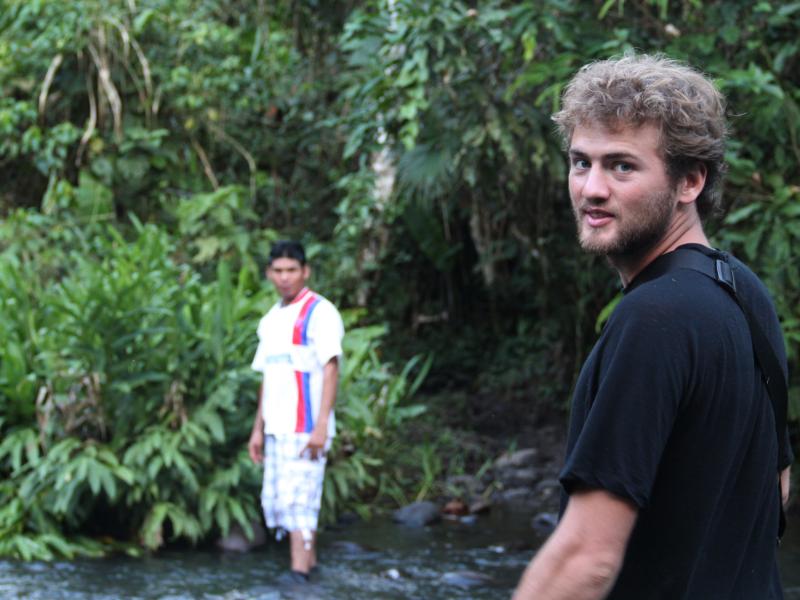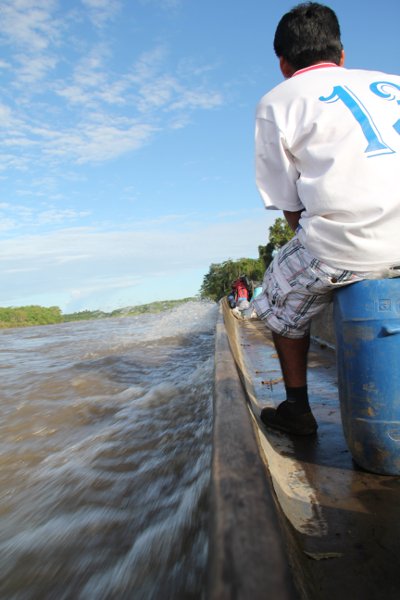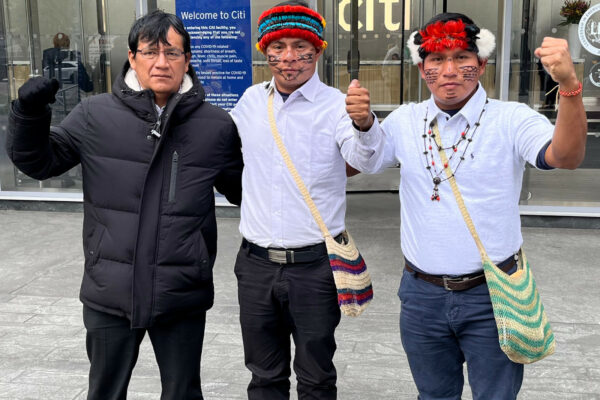
Last year, Ecuador’s government paid over $1 million for the rights to use the Beatles song “All you need is love” for its new slogan to promote the country worldwide. Branding itself as a welcome, inviting place of adventure, biodiversity, and rich cultural heritage, “All you need is Ecuador” (#AllyouneedisEcuador) ads have run throughout the US, on prime spots during the recent World Cup, and on social media, targeting tourists, retirees, and volunteers. However, Ecuador’s recent treatment of one U.S. citizen particularly calls into question the country’s professed welcome policy to the world.
On July 17, Oliver Utne, a U.S. citizen residing in Ecuador with a valid visa, was abruptly questioned, detained, and forced to leave the country after being targeted by Ecuadorian immigration officials. Utne had been living in the country for several years. He was coordinating an innovative solar canoe project with the Achuar indigenous people with funding from the government of Finland, in collaboration with ESPOL University of Guayaquil in Ecuador and the Massachusetts Institute of Technology (MIT).
Utne attended a public event in Quito’s Botanical Gardens and, upon leaving, he was approached in the parking lot by a group of ten men in an unmarked car who claimed to be officers with Ecuador’s Department of Interior, which governs the national police force. They asked him if he was Oliver Utne and tried to take him to the local precinct along with two other U.S. citizens. After refusing until marked cars and officers with badges appeared, Utne and the two others were taken to an immigration office presumably to review their papers.

Utne attended the closing event of Fundacion Pachamama, an Ecuadorian NGO that previously sponsored his solar project and where he worked prior to its forced shut-down. The Ecuadorian government arbitrarily shuttered the organization last December under a legally dubious pretense for its work with indigenous peoples in Ecuador’s southern rainforests who have been opposing government oil extraction plans on their land for decades.
The blatant targeting of Utne is highly suspect and appears politically motivated – an attempt to intimidate and send a message to foreigners who reside in Ecuador. The Ecuadorian government claimed that it was a routine operation, but this defies logic. A routine operation seeking papers of foreigners who happen to be in a dark parking lot of a location where most guidebooks and police warn gringos not to go, even during daytime? Clearly, they were waiting for Utne, knowing he’d be at the event. They even identified him by name.
Ironically, Utne’s current project with the Achuar indigenous people is very apolitical, and in fact has brought in revenue for both the people and the country. The project, which began under Pachamama and then flourished with independent funding thanks to the Finnish government, had support from local municipalities and mayors in neighboring jungle towns.
Bringing alternative energy to groups like the Achuar is incredibly important. The Achuar number around 7,000 and live in a roadless, remote part of Ecuador’s Amazon rainforest close to the Peruvian border. Shipping in gasoline from distant jungle towns is both costly and dangerous. Using gasoline for normal outboard motors also takes a toll on the unique ecosystems – some of the most biodiverse in the world – and a major draw for tourists who visit the Achuar-run Kapawi Ecolodge.
After being released in the middle of the night with the two other U.S. citizens, Utne arrived at a prescheduled visa hearing the next day. There, he was presented with a cryptic letter. Allegedly from the Ministry of Foreign Affairs, it was written on white, college rule 8×11 paper with no letterhead, stamps, or seals – surprising from a country where even a purchase from a local store can require several signatures, stamps, addresses, telephone numbers, and national IDs of the purchaser, as well as result in multiple colored copies of receipts.
The letter ominously told Utne that his visa was canceled and if he were to remain in the country, the state could not guarantee that his rights would be preserved. Taking the hint, Utne left immediately. He is now attempting to resolve the visa issue from abroad, where hopefully foreign Embassies have a better understanding that if the country wants to convince people that “All they need is Ecuador,” it ought improve its treatment of foreigners who are bringing in financial and technological solutions to critical challenges faced by Ecuadorians.
Click here to read Oliver’s open letter on his work and the joy of living in Ecuador.













